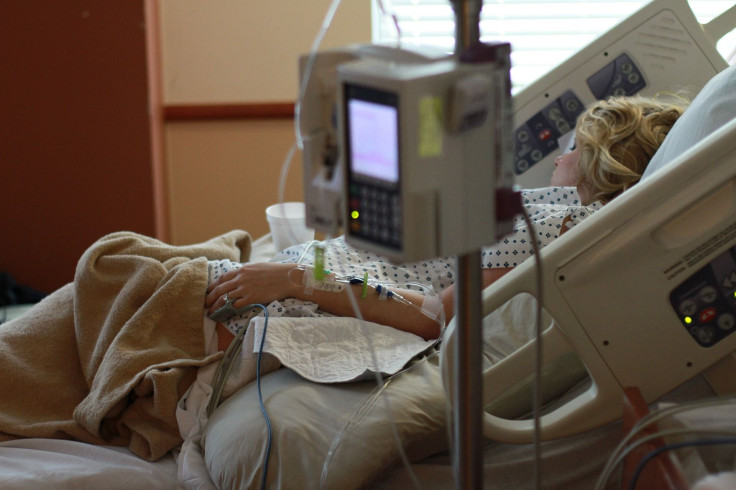What Causes Postpartum Depression? Painful Labor And Delivery Linked To Psychological Condition

Having less pain during childbirth may not just be more comfortable for moms in the delivery room, it may also help their mental health shortly down the road.
A preliminary study suggests that lower levels of labor pain reduce the likelihood of postpartum depression, a condition affecting mothers who have recently given birth, according to a statement from the American Society of Anesthesiologists. The study findings were presented at the society’s annual meeting.
The National Institutes of Mental Health estimates that postpartum depression follows about 15 percent of births in the United States. Although most new parents feel tired and worried (and may suffer from what's known as the baby blues), women with postpartum depression feel extreme sadness, anxiety and exhaustion. Other symptoms include rage and irritability, a change in eating habits, withdrawing from family and friends, and having trouble bonding with the newborn. The federal institution says that factors behind the condition, including changing hormone levels of estrogen and progesterone, following childbirth can contribute to postpartum depression because “this leads to chemical changes in her brain that may trigger mood swings.”
For the preliminary study, researchers looked at medical records of about 200 women who had used epidurals — an anesthesia to ease pain — during labor and assessed their depression risk.
“We found that certain women who experience good pain relief from epidural analgesia are less likely to exhibit depressive symptoms in the postpartum period,” Dr. Grace Lim, the study’s lead investigator, said in the statement from the American Society of Anesthesiologists. Labor pain is more than just uncomfortable: “It may be psychologically harmful for some women and play a significant role in the development of postpartum depression.”
However, Lim stressed that so far the researchers have only established a link between experiencing less labor pain and a lowered risk of postpartum depression — it remains to be seen whether better controlling that pain with an epidural really prevents the depressive condition.
“Postpartum depression can develop from a number of things including hormonal changes, psychological adjustment to motherhood, social support, and a history of psychiatric disorders,” she said.



























